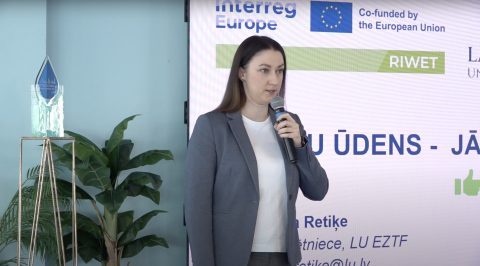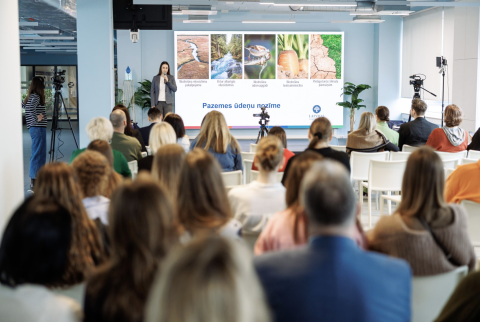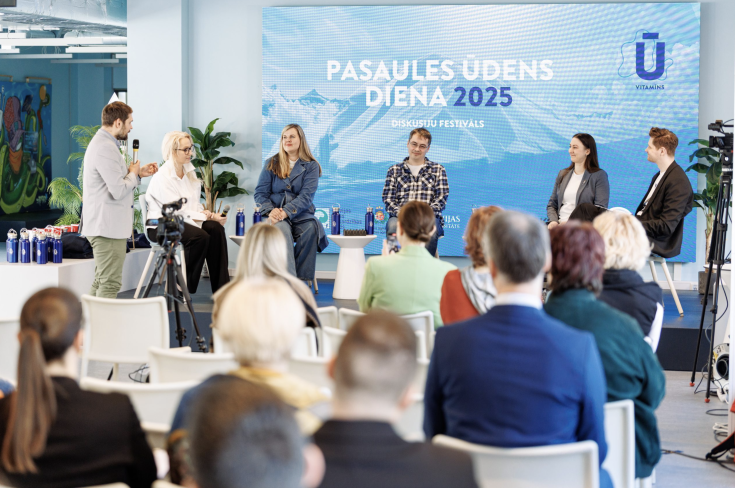World Water Day: Glaciers, Springs, Rivers & Wetlands
Celebrating World Water Day 2025, Latvia became the vibrant stage for an engaging discussion festival centered around this year’s theme—Glaciers Preservation. On 21st March, more than 70 participants gathered on-site - and over 300 tuned in online - to explore pressing water-related topics. The event brought together a diverse audience of researchers, water managers and waterwork operators, influencers and even pupils!

Springs as super agents
Spring waters act as the visible interface between groundwater and surface environments. They respond dynamically to both local influences (such as pollution or overuse) and broader shifts caused by climate change, including glacier retreat.
Why super agents? Because like skilled detectives, springs carry messages from deep within aquifers. Monitoring them can reveal patterns in recharge, pollution, or seasonal flow - making them essential allies in managing and protecting our water resources.

Connecting the dots
The latest UNESCO World Water Development Report 2025 emphasizes the interconnections between freshwater systems. With around 70% of the world’s freshwater stored in glaciers and ice sheets, their decline has far-reaching effects - especially for rivers fed by meltwater, downstream wetlands, and the aquifers recharged by these flows.
As glaciers shrink, they alter the timing and volume of water entering rivers and wetlands. This, in turn, impacts the ecosystems and communities that depend on consistent freshwater supplies - from mountain villages to lowland farms.
Spring systems offer a valuable lens into how these changes unfold, making them not only ecological assets, but also climate-sensitive indicators for water policy and planning. Dive into the latest UNESCO World Water Development Report 2025.
Shared responsibility
The discussion festival served as an important reminder: protecting glaciers, rivers, wetlands, and groundwater cannot happen in isolation. It requires integrated thinking, cross-sector collaboration, and communication that bridges science and society.
As we face increasing pressure on our freshwater resources, local actions and shared knowledge will be key to creating sustainable solutions - from the peaks of mountain glaciers to the bubbling springs beneath our feet.
More in the make
Our partners at Revivo or also planning a similar World Water Day event, currently set for this June. So there's a lot more in the make! Watch this space for more news and follow RIWET activities here or through social media to see how we take real actions and improve various policy instruments to mitigate climate change impacts.
Meanwhile, you can also learn more about RIWET's good practice on spring monitoring:Spring monitoring by citizens to improve groundwater resources management
Or read the engaging story on the Interreg Europe Programme's site of how are Latvian parners are approaching peatland restoration: Fighting climate change: Peatland restoration in Latvia
With thanks to Inga Retike

